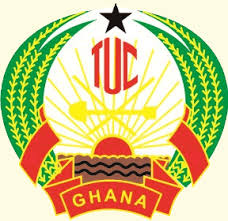Inviolata Chinyangarara, Senior Technical Specialist for Workers Activity at ILO Country Office in Abuja, has called on Ghanaian trade unions to make Collective Bargaining Agreements (CBAs) reflect and respond to workers’ needs.
She said trade unions should consider incorporating into CBAs psychosocial support for younger and older workers in times of crisis, occupational safety and health clauses, gender equality, and coverage of workers in non-standard forms of employment.
In a presentation on the topic, ” Changes in Employment and their Implications for Collective Agreements,” she said collective agreements played a key role in mitigating the impact of COVID-19 pandemic on employment and earnings.
She underscored the importance of CBAs and stated that the ratification of ILO Conventions 87 and 98 was to ensure that the instruments were domesticated into the national law.
Ms Chinyangarara encouraged the trade unions to reinforce CBAs to leverage the membership of non-standard workers, which had been on the rise in recent years, with dire consequences on workers’ rights, security, and livelihoods.
On issues of the climate crisis, she admonished the trade unions to consider the establishment of representative bodies with ecological competences in the CBAs to address the issues.
She urged the trade unions to leverage and embrace technology through teleworking and integrated skills development in the CBAs, to respond to changes in the world of work.
The Country Officer urged the leadership of the unions to review the CBAs on issues of gender to ensure that they were fit for purpose and addressed the needs of the workers since most of the agreements were obstinate.
She said the ILO Occupational Safety and Health clauses in collective agreements touched on participation in COVID-19 workplace safety, organization, and administrative measures, protecting frontline workers and personal protective equipment.
She said the ILO had made strides on its OSH measures during COVID-19, including the tailoring of public health measures at work places, paid sick leave, and healthcare benefits provided for in key services that enabled businesses to continue operating during the pandemic.
Ms Chinyangarara commended Ghana for putting CBAs in place and said, “We want to see trade unions and employers upscale on social protection issues and as well attract new members.”
Dr Prince Asafu-Adjaye, a researcher, TUC Ghana, analysed nine collective agreements by five affiliates of the Congress from the Maritime and Dockworkers Union, the Timber and Woodworkers’ Union, the General Agricultural Workers’ Union the Union of Industry, Commerce and Finance Workers, and the Public Services Workers’ Union.
The findings of the analyses, he said, revealed that collective agreements were important in promoting decent work but limited in guaranteeing rights at work and extending social protection to workers in new forms of employment.
Dr Asafu-Adjaye recommended that the trade unions incorporated provisions that regulated working time for remote work into collective time and have a clause that addressed OSH issues related to working from home.
Business News of Thursday, 24 November 2022
Source: GNA
Collective bargaining agreements must respond to workers’ needs - ILO
 Trades Union Congress
Trades Union Congress












